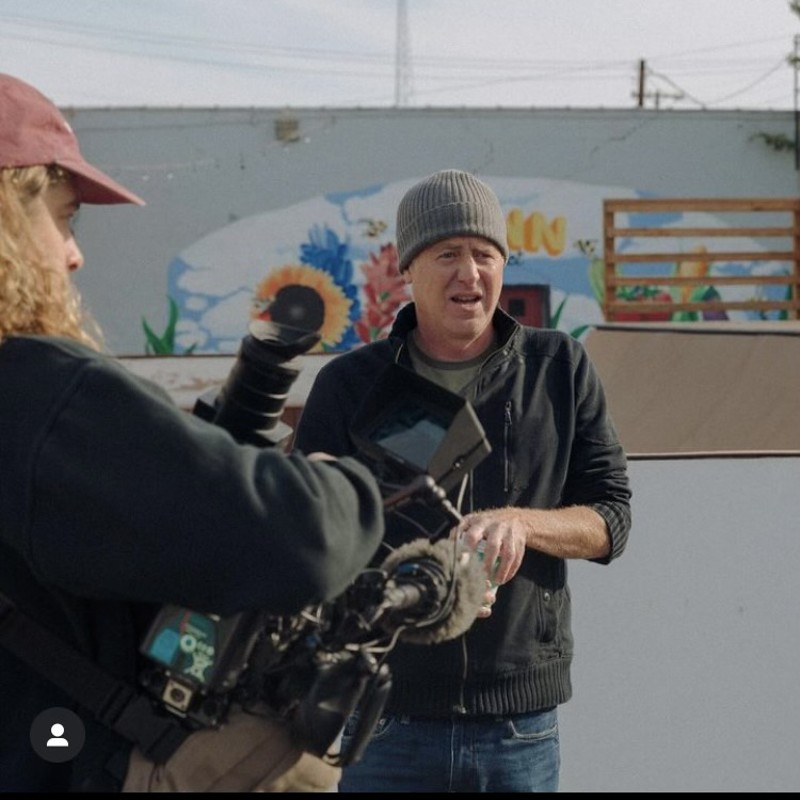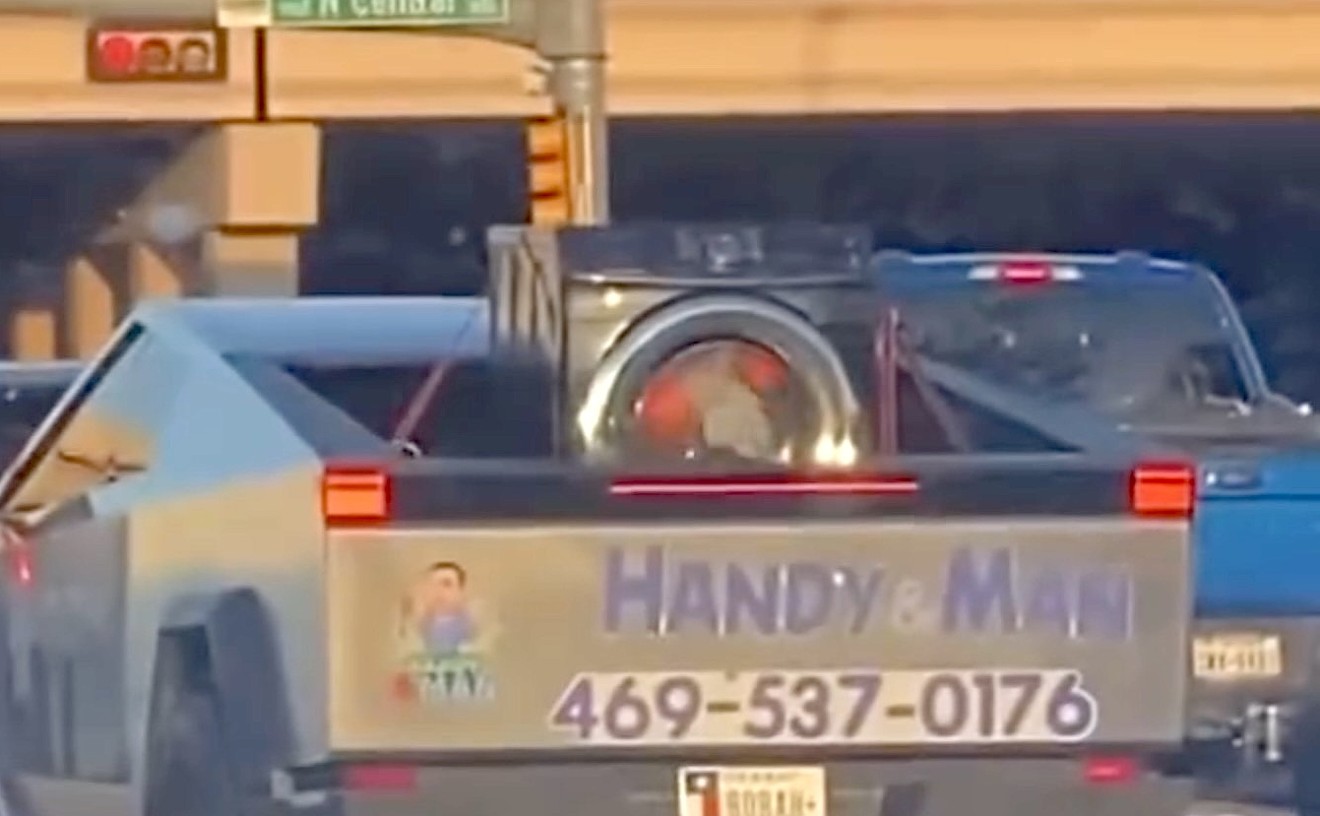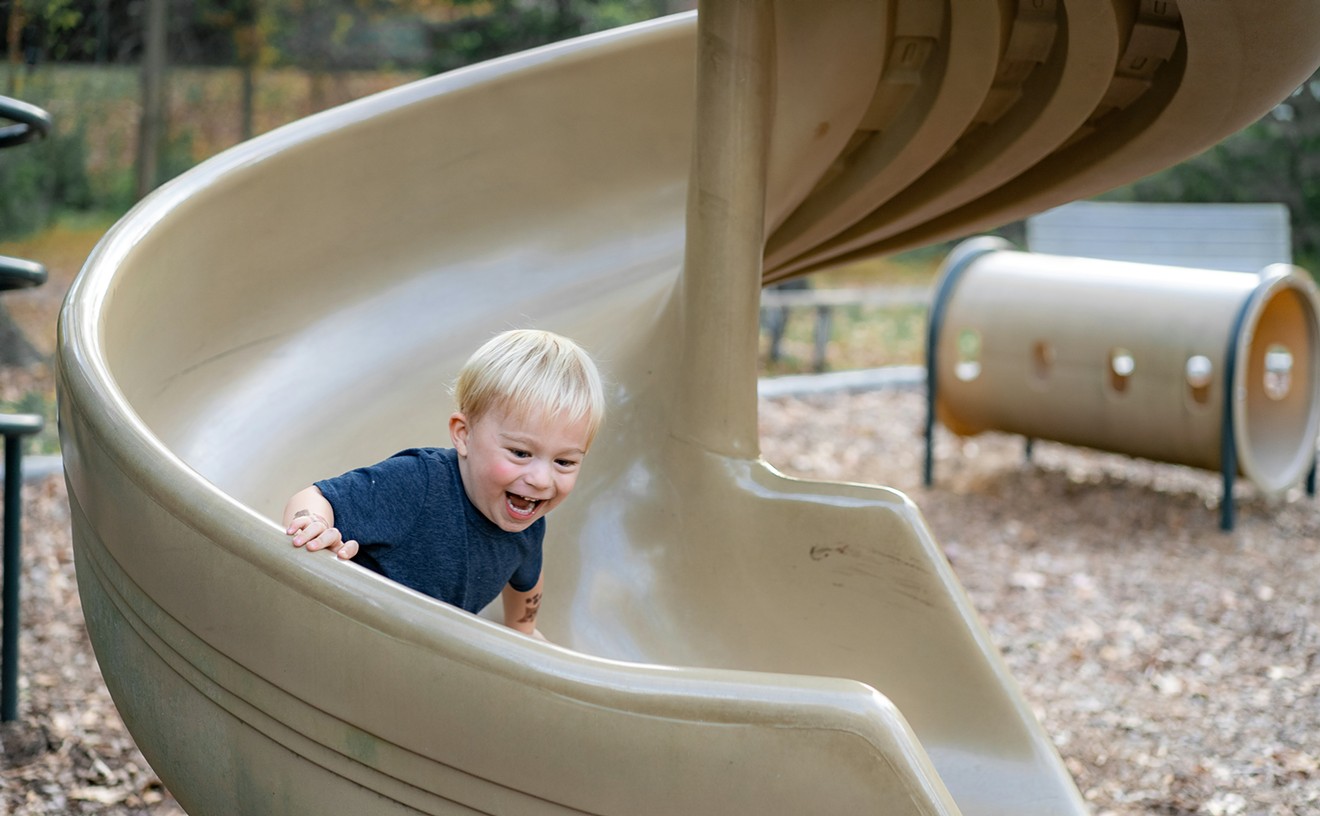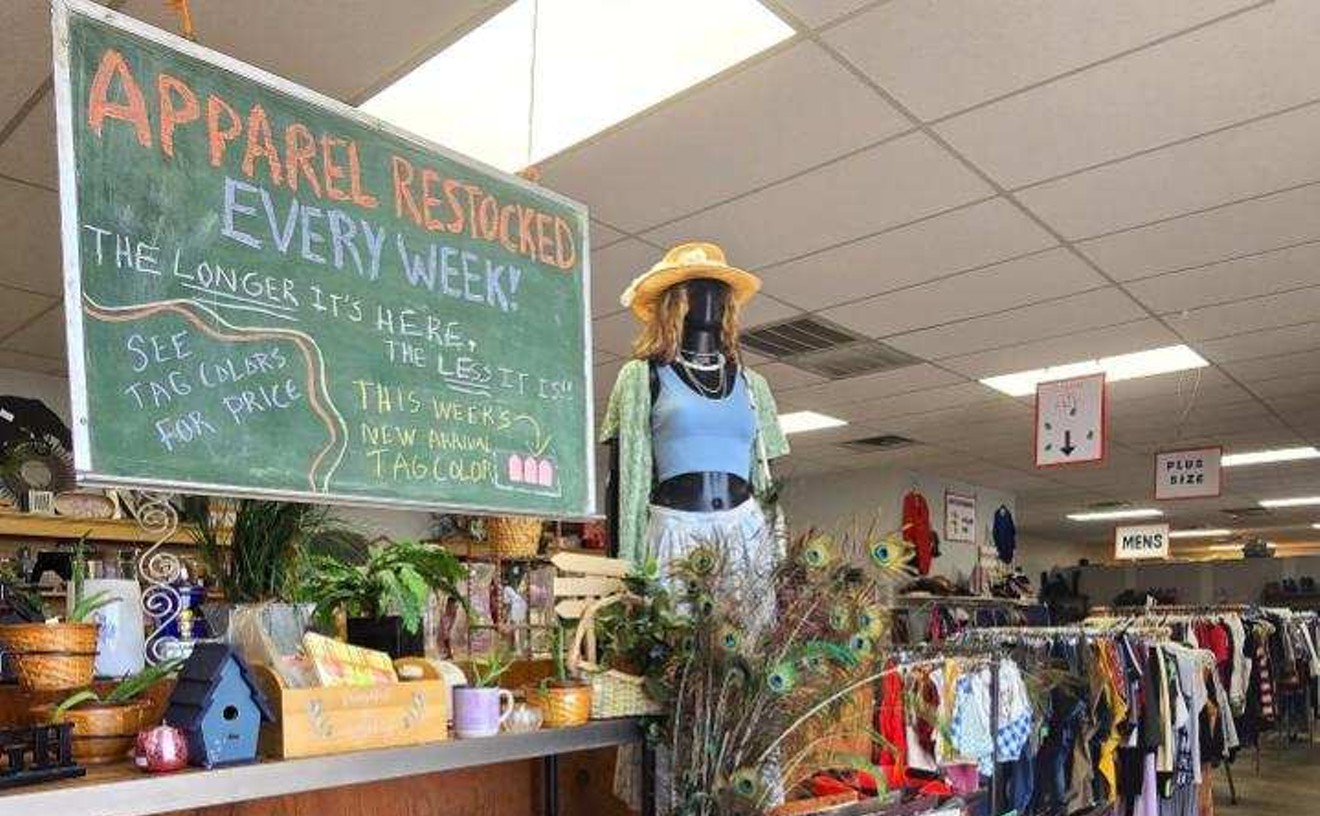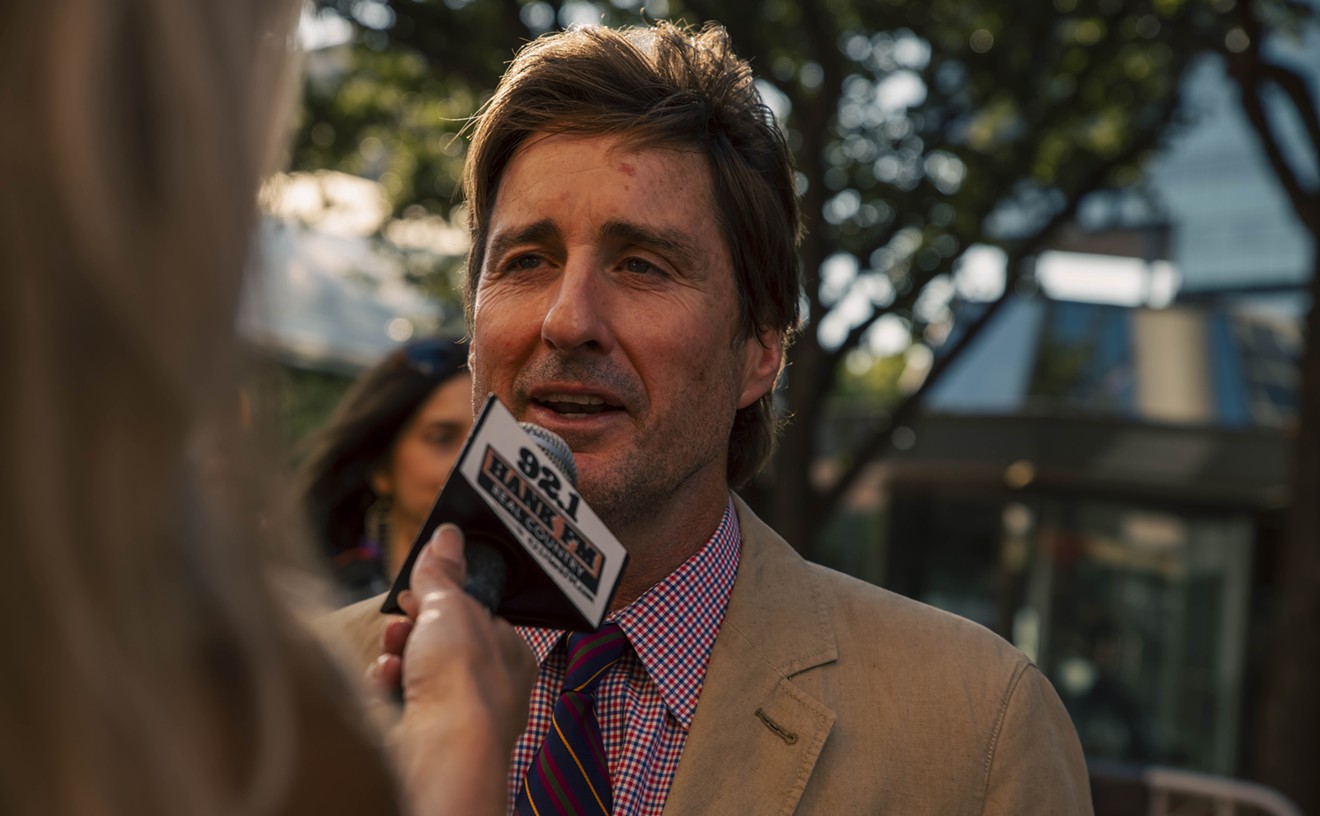“Skate, art, music and food, those are the four elements of 4DWN,” says Rob Cahill, co-founder and skater. “Four-wheels down, we’re all about moving forward. We’re trying to move forward and find solutions along the way.”
Another one of the park's founders is ex-pro skater and Dallas native Mike Crum. Mentors including Skateboarding Hall of Famer Kareem Campbell, and other professional skaters, pay regular visits to the public arena.
Along with these ventures, 4DWN is registered and active as a nonprofit corporation with a mission of fostering sustainable health and wellbeing through a zero-waste food cultivation and redistribution program.
“On the skate level, we’re international, we have resident hall of famers, international pros, but on the other hand you have the local community that represents art, music and food,” says Cahill. “So we kind of leverage our position in the skate world to bring resources and attention, and juxtapose it against what’s going on in our local community.”
Most recently, 4DWN gained national attention in the world of film. The documentary 4DWN, presented by EarthX Film and Gnarly Bay, made its world premiere at the Mountain Film Festival in May. Now it’s about to make its Dallas premiere at the Oak Cliff Film Festival on June 25, at the Kessler Theater.
The documentary loosely follows the story of 11-year-old Zion Carr, a young 4DWN skateboarder whose charisma spews through the screen, despite his struggles at home taking care of his younger brother while his mom is sick in the hospital. His positive energy stays consistent as he works on teaching his brother the basics of skateboarding and enthusiastically serving alongside 4DWN ‘s volunteer projects.

Dallas artist Drigo made a canvas out of the 4DWN skatepark. And that's only one reason it's so cool.
Exploredinary
Zion’s attitude keeps spirits high as the film touches on a bleak reality of struggle — though the community persists on giving. One thing that was not featured in the film is that Zion Carr was approaching a national trial at the time of filming, after witnessing the shooting of his aunt, Atatiana Jefferson, the Texas woman who was shot and killed by a police officer in Fort Worth in 2019. The officer who shot Jefferson, Aaron Dean, had responded to a non-emergency call about an open front door and shot Jefferson in her home. Dean was subsequently found guilty and sentenced for manslaughter.
Zion was privately going back and forth to the trial for cross-examination during the same time of the documentary’s filming. The filming, which took place in late 2022,d was riddled with more tragedy for Zion as well as his mother, Amber Carr, who was hospitalized during the time of the trial and died in late January this year.
Skateboarding, and specifically 4DWN, provided a support system for Zion Carr, a concept paralleled in the film with interviews with 4DWN founder Cahill, who also found skateboarding as an outlet through a difficult upbringing. But it’s more than just about skating, he’s sure to emphasize.
“We’re trying to create a culture that optimizes social behavior, the same way we design a skate park to optimize skateboarding behavior," Cahill tells the Observer. "4DWN's vibe is encouraging, celebrating ingenuity, action and inclusion. We’ve become a safe space with no weapons, no alcohol, no drugs and no gossip. So people come to skate, but they can also play basketball, make art, help with gardening, listen to music, do some hands-on service work, meet cool people, learn, have conversations. Higher level shit.”
In fostering that type of culture, 4DWN expanded beyond recreation to include other elements such as education, cultivation and conservation.
“What we do evolves in response to opportunity gaps faced by our local community," Cahill says. "South Dallas is a recreational desert, an infrastructure desert, and, one of our country’s largest food deserts.
“We realized 40% of food goes to waste, meanwhile over 40% of Dallas is a food desert. You put those numbers together and you don’t have to be a genius to be helpful, it just takes a little bit of giving a fuck. And people do, there’s not only an abundance of food but there’s an abundance of good will.”
Seeking this, Cahill and co-founder Mike Crum began partnering with local food growers to incorporate educational programs on food cultivation, then eventually they set to work on building relationships with local food producers, distributors and grocers to collect food headed for waste and redistribute it amongst those in need.
While unseen at first, a portion of the park is built on top a massive shipping container that doubles as a cold storage for food that is distributed weekly at 4DWN’s 9–10 a.m. volunteer “Sunday Service.”
“Some weeks have more food than others,” Crum says. “We collect local foods throughout the week then pick up loads from different Whole Foods the day of.”
From there, organizers lay out the tarp and join volunteers in sorting through the collected food, which varies each week depending on what items have been considered surplus based on seasonal and supply chain issues. Foods that would normally be thrown in the trash are sorted into care packages with varieties of sustenance, from fresh produce, quality dairy and bakery items, and nutritional proteins to high-dollar grocery items, organic, brand name and chef-made meal kits and other packaged goods, and all food that can’t be used is composted into soil, minimizing landfill waste which causes methane gas production, as well as providing additional benefits that reduce our carbon footprint.
Theresa Tumminia, director of outreach and programming, directs the food redistribution program from the grassroots, leading growing handfuls of volunteers each week, food distributors and partnering organizations, then personally distributing food packages and getting the word out to families and all of those in need.
“Maslow’s Hierarchy of Needs,” says Cahill, drawing a diagram of what the project means to him personally. “The fundamental needs are physiological. You need water, you need food, shelter, clothes. Then after that you need safety, you need community. And as you go up the hierarchy of needs, you have aspirational needs, art, poetry, inspirational things. But eventually you arrive at a point, the actualization level, which is the need to give back.
“I get depressed. When I look at the news, I become a depressed person. But when I see people cooperating and developing, it’s harmonious. It makes me feel like the world is worth living in.”

